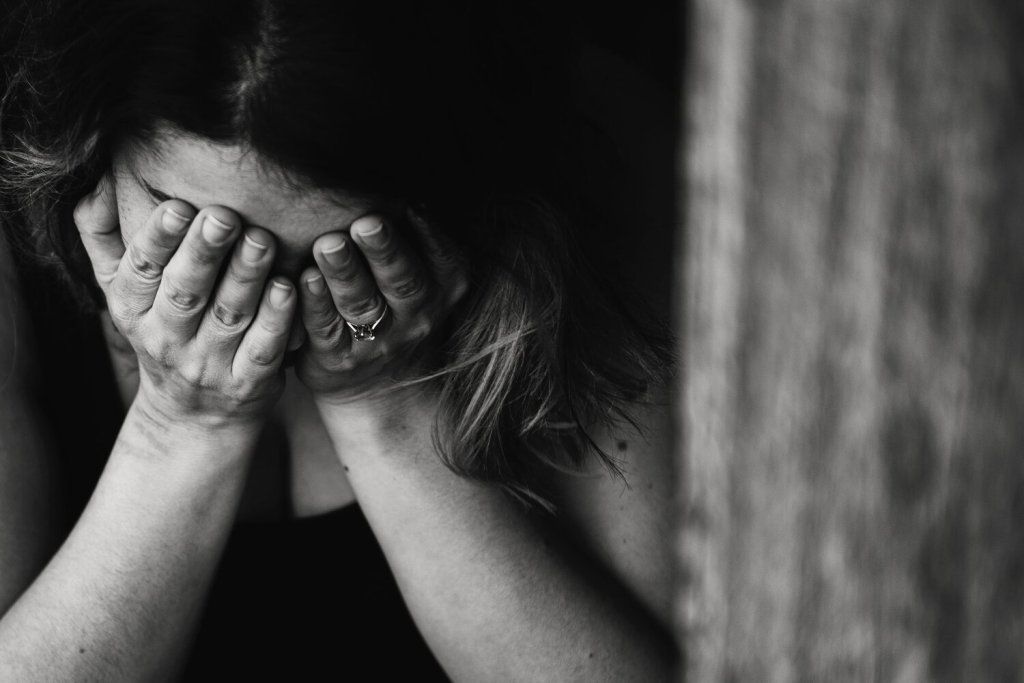
Lament, Reality, and Hope
This is a talk that was originally given by David Smyth, Director of Evangelical Alliance at Thrive Ireland’s “Speaking Out” Conference on 19th November 2019. He was subsequently asked to use the content again at the re-launch of Contemporary Christianity under the updated title above.
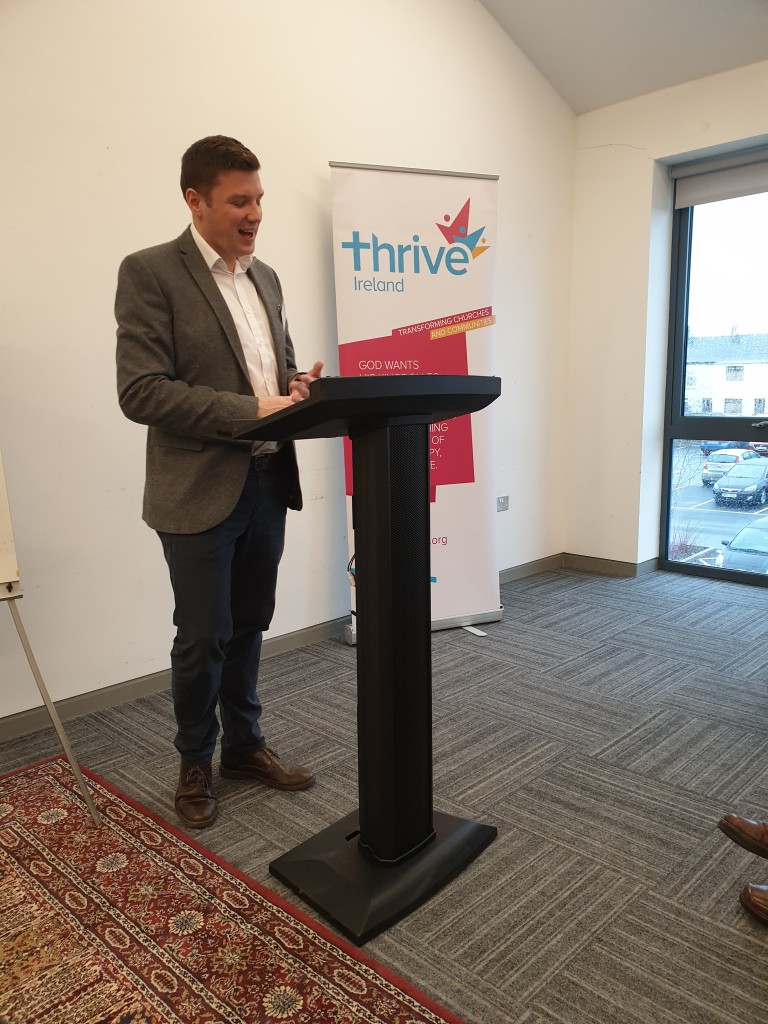
Introduction
I love this title.
I’m not sure it was meant to be ironic – but we literally can’t even agree on the state we are in….its name or the constitutional authority of this place.
I have been asked to speak tonight using a talk I gave a few months ago at a Thrive Ireland conference, but under the updated title – The state we are in: Lament, reality and hope.
In fact right now, as I’ll come to shortly, I’m not sure we can agree on very much – is my cause for lament your cause for hope – Can we even agree on reality any more?
But enough of the existential questions – for a moment.
The Assembly is just back after a three year hiatus and still struggling with a huge vacuum, with only a few notable exceptions, abdication of leadership at a political level.
This week Finance Minister announced there is a £600m funding deficit before any of the New Decade New Approach commitments are even considered.
Poverty, welfare reform, a lack of social housing, addictions, mental health – indeed a health service which is being stretched to breaking point.
Brexit – We have left the European Union and future trade & immigration policies remain uncertain.
Re-unification – A few days ago Sinn Fein announced they will appoint a Minister for Irish unity if they can form a government in the South – approaching 100 year anniversary of partition – what better time for a bid for reunification?
Tonight I want us to think about the state we are in alongside reconciliation – which I think encompasses ‘lament, reality and hope’…
- I want us to consider reconciliation in the broadest sense – the worldviews and ways of being in the world, through which we approach these issues.
- Then I want to localise that to Northern Ireland in 2020…
- Finally I want us to think about how we might faithfully navigate these interface spaces as Jesus’ ambassadors of reconciliation and hope.
The journey from lament to hope, through reality, takes us right to the heart of huge philosophical and religious questions like, can some situations ever be redeemed? Is justice really possible? What does it really mean to be human?
As followers of Jesus who are seeking to answer these questions, it is important to appreciate just how different the biblical approach is from the prevailing cultural outlook. If we fail to recognise how different our starting points, ending points and the stories we are living in are, we will miss each other – it is as if we are talking different languages.
So what is the big story being told in Western prevailing culture that sits behind much of academia, politics and media….?
There is no God. Religion is a relic from our primitive past. Human life is a cosmic fluke. Human beings have no objective or inherent value above a leaf or an ape. Any value, worth, purpose and dignity we have, we give to ourselves above other animals. Any sense of justice, compassion, morality is again our own invention.
Richard Dawkins said this,
“In a universe of blind physical forces and genetic replication, some people are going to get hurt, other people are going to get lucky, and you won’t find any rhyme or reason in it, nor any justice. The universe we observe has precisely the properties we should expect if there is at bottom, no design, no purpose, no evil and no good, nothing but blind pitiless indifference.”
It’s pretty bleak, but most people I know who live outside the Christian story are not nihilistic. They don’t live day to day like they really believe the reality that Richard Dawkins outlines so starkly.
There is a strong but vague hope that things are going to get better.
Many people live in this space between the utter meaningless of everything and the myth of progress. So ultimately there is a mood that individual choice reigns supreme. You be you.
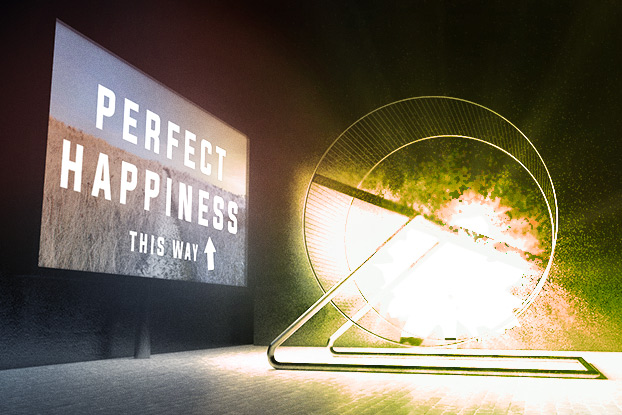
Because death is end, this life is all there is. There still remains some sort of notion of an afterlife where loved ones smile down on us, but this is more of a cosmic comfort blanket than a strongly held religious belief. Very importantly, there is no ultimate moral Judge or justice beyond this life.
And so the current obsession with human rights and equality is interesting in the Western worldview around us. Some of this is really good and evidence that despite the scars of the fall, humanity still seeks justice and redemption – putting wrong things right.
But there is ultimately a doomed attempt here to seek justice without acknowledging the Judge, Kingdom values without the King, redemption without repentance, an attempt to give dignity to humanity while refusing to acknowledge the One in whose very image we are made. Our society wants the fruit of the Christianity while hacking at the roots.
I say all this to point out that in this way of seeing and being in the world, at bottom, there is no over-arching story which ends in redemption, nor an agreed moral framework within which to reconcile.
The reality is that lament falls upon the indifferent ears of the universe and hope is limited to the best efforts of the human project.
The biblical story
In the beginning God….. Four words in our language shape everything else….
Not us, or our conception of God, but God…The story starts with Him, not with us. That’s a radically different starting point than the current worldview around us.
Christianity claims to be public truth, an unfolding story of the whole world.
Identity – Imago Dei – image of God, worth, value,
Relationships, God, each other, the world around us.
Purpose – To live in these relationships, to steward and co-rule the earth.
We also have the concept of Sin – the fall and it’s effects on identity and relationships, the roots of sickness, suffering and death. Sin fractures human dignity and identity and breaks relationships.
Sin leads to idolatry and injustice – The displacement of God and people made in his image from their proper place.
But at the heart of the Gospel is a gift of reconciliation with God through Jesus Christ. While we were far from him and living in open rebellion, He called us to be his children.
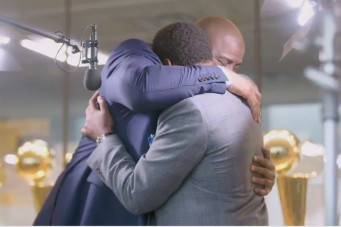
So the biblical story is one where we are invited and pursued to be transformed from enemies to family. How incredible…. Imagine a God who pursues his enemies calling them instead to become family. This is difficult for us humanly to get our heads around and so we don’t miss it, scripture uses many different images…
So God is our Father, we are brothers and sisters, we are adopted and born again and our relationship with Jesus as the Church is best communicated through the living symbol of marriage. The not so subtle message that runs throughout the gospel, from seeds in Genesis to the healing leaves of the tree of life in Revelation is that we are pursued by God to be transformed from enemies to family.
Ultimately, we believe that Jesus is returning with judgment and justice and new life in a new Kingdom. This provides a basis for repentance and hope, because one day there will be accountability, justice and mercy meeting in Christ’s rule upon the earth. We look forward to when death will be no more and believe that God is making all things news (Revelation 21).
So in the biblical story, love, truth and reality are revealed in the person of Jesus Christ. Lament falls upon the ears of a loving and just God. Hope, life and redemption are found in the kingdom of God.
What I have just covered briefly are simply a few of the orthodox claims of the Christian Church – you’ll find them in any creed or catechism and yet they are huge claims and vastly different from the prevailing concepts of life and death and justice around us today.
Lets give this interface space between the cultural story and the biblical story a local accent…
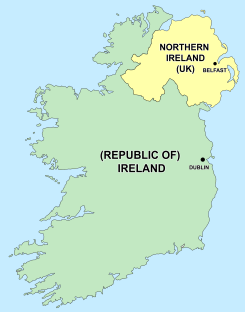
- Battle of the Boyne – a Dutch Protestant King with the backing of the Pope fought an English Catholic King on the banks of an Irish river as part of a wider European war…
- No matter what your moral view on the history of this place, our history tells us that Protestantism came to these shores in turbulent and violent times. Something of this culture remains today….
- The Troubles – and I don’t raise this issue lightly, even in a room this size, people affected…
- Without going into the origins of the modern day troubles in a lot of detail, we can say it happened in a context of political, social, religious tension and injustice.
- Around 20% of all deaths happened in one square mile in North Belfast – in this area today, 22 years after the Belfast Agreement, this is where we see some of the highest levels of social and family breakdown and ongoing unresolved community trauma.
- Put simply – Reconciliation is one of the greatest moral and social justice issues facing Northern Ireland today.
- Two stories to earth these statistics into real lives…
– On 24 July 1997 – Clough – A 16 year old boy called James had just sat his GCSEs…killed just because he was a Catholic.
– Darkley – November 20 1983, 3 people, tin hut, small Pentecostal Fellowship, singing ‘Are you washed in the blood of the lamb…’.. ‘an act of sectarian slaughter on a worshipping community which goes beyond any previous deed of violence’. A local priest went to visit the wife of one of murdered elder. He was interviewed on TV afterwards, and he said one of the first words on her lips was ‘forgiveness’.
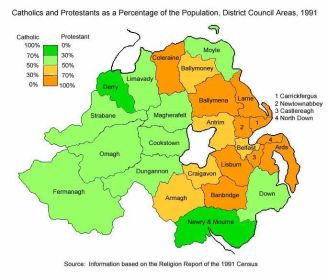
- Geographical – we are caught between London and Dublin with many people feeling dislocated from both, the odd cousin at the family wedding, related but very different… Westernedge of Europe – rural, island, …affects outlook.
- If you look at maps of distribution of religious identities you can see Church history reflected in Church geography.
- Unionism – little future vision to realise, it is already achieved…. looking backwards and energy invested in defence of the status quo.
- Nationalism – hope for change…. Energy invested in a goal yet to be achieved.
- Historical mind-set of siege, suspicion, no surrender and defence.
- Don’t underestimate how deep this runs into the psychological and spiritual mindset of people here…
- In setting up a community group in a mainly protestant/unionist area…. we knocked on 200 doors… not invited over the threshold once… But a Catholic friend said you’d be in every house for a cup of tea in his community.
- Parishes of proximity (Catholic Church)
- Parishes of belief – evangelical. Parish model is still alive and well, but more and more so, evangelicals gather around parishes of belief…People travelling past 12 Churches to get to one with whose teachings they agree. I say this simply to remind us that this is a luxury that believers in other parts of the world don’t have….
- And yet Contemporary – Western, secular, prevailing worldview creeping in – becoming more homogeneous with any western country – culture is becoming more homogeneous – globalised cultural fads and values. So even in Cullybackey or Castlewellan tonight you will find a teenager connecting with the world through their iPhone ... just like some other kids in Australia or New York…
In the last census, 82.3% of Northern Ireland’s population identified as Christian. In England & Wales it was 59%.
Ina Tearfund survey 45.3% of people in NI attend Church at least once per month compared to UK average of 15.5%.
BBC figures show that 42% of over 50s go to Church weekly but only 10% of 18-24 year olds.
Demographics are shifting fast…
So a historically ultra-religious and politically contested culture… changing very rapidly – increasingly de-churched & secular yet still divided….
Incarnational Interfaces
So….
Are we the masters of our own destiny in a universe of blind pitiless indifference?
Or are we living under the reign and rule of God in His unfolding story of reconciliation?
Are we citizens of the United Kingdom, pursuing a united Ireland or both?
What is reality in this moment?
Because this will shape what both lament and hope looks like here and now.
At this interface of worldviews, we are called to be incarnational, sent with a distinct:-
Presence
Power
Purpose
We are Christ’s Ambassadors – I love this image from 2 Corinthians 5:20 The phrases from the passage….
‘Ambassadors of Christ, God making his appeal through us.’
“Christ’s Ambassadors”
“Ministers of Reconciliation”
It’s a deeply political image… Ambassadors are sent from one kingdom to another. They have a purpose, they are not just there on holiday or sent to live as private citizens. They are sent to live in one culture but are loyal citizens of another. Sent with a purpose of representation to another culture.
They have to read two cultures and practice diplomacy, translating their message appropriately, carrying the values and truth of the gospel into the world around us.
Do you think of the gospel in this way – primarily a message of reconciliation proclaimed at the interface?
What could it look like to be a peace-maker in the middle of a culture war? Where is the common ground?
More specifically what does the gospel as a message of reconciliation have to say and bring to Northern Ireland in 2020 – a society where division still runs deep?
So as we try to bring together a biblical understanding of reconciliation in a post-modern 21st century and a specific place and people, here are a few scattered thoughts about how we might respond as followers of Jesus to public issues and collectively as the Church….
Church
In these times, churches and para-church organisations are feeding the poor, housing the homeless, welcoming Syrian refugees, endowing value into the lives of young people, fostering children, including the disabled, caring for the sick and the isolated.
During ‘The Troubles’, the Church buried the dead, cared for the bereaved, made statements which called for violence to end, and pointed to a better way. Members of the Church made key political decisions, were state forces, were killed or injured, or lost loved ones, took lives and have come to saving faith in Christ.
And while much good work and care was given by Churches, simply put, the Church has not always got it right.
I think there are three broad ways that the Church could act as ambassadors of reconciliation in the state we are in:-
Prophetic, pastoral, practical.
- Prophetic
Repent and lament
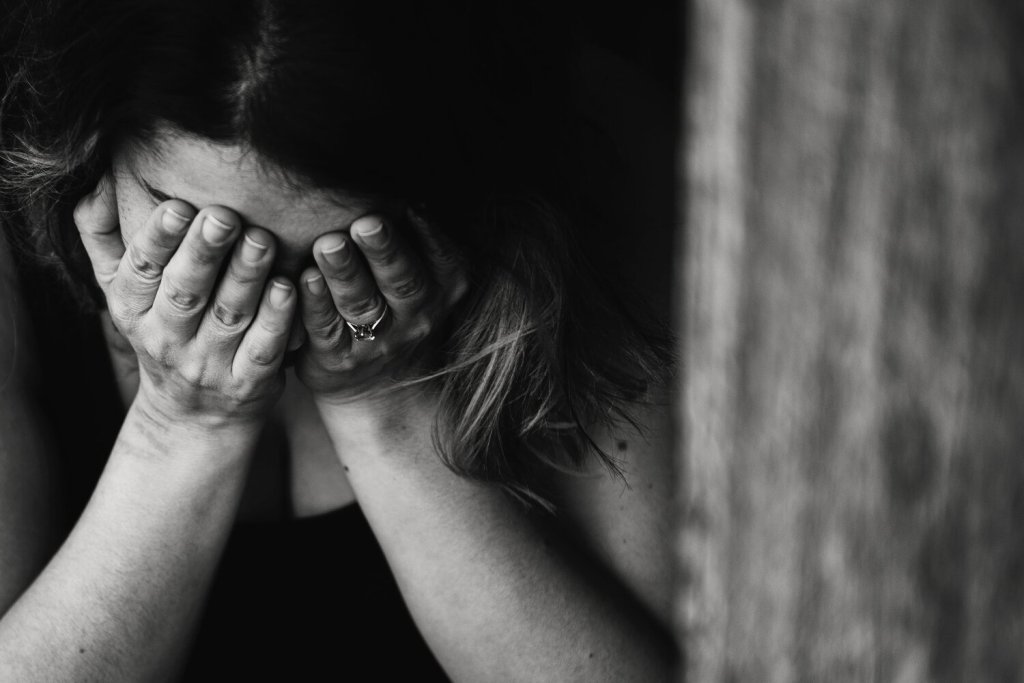
This is not a bland or blanket statement or the idea that everyone was responsible for everything that happened.
But on occasion earthly empires have been confused with the kingdom of God. As Christians our primary identity is now, and will one day be, as citizens of the Kingdom of heaven. We need to hold our other legitimate political or national identities loosely in comparison. At times the Church has been too vocal, at other times deafeningly silent. Culture, politics and religion have been confused and conflated.
God pre-dates and transcends the many labels used in Northern Ireland. Perhaps we just need to remember at times that God is not a Protestant, nor a Catholic. He is the almighty Holy God – we need to be careful not to fall into the age-old sin of remaking him in our image.
Where the Church has fallen short, we should lament and repent.
· Development of a public theology of reconciliation – REALITY
Many great and noble attempts have been made at political leadership and grassroots level across civil society to make and maintain peace here. It has been a long and costly journey for many people involved in and/or victimised by the conflict.
But today we are trying to make peace in a very different context to when the modern-day troubles broke out over fifty years ago – or when the roots of the conflict began hundreds of years before that.
Modern Western secular culture is deeply shaped by individualism and the privatisation of truth. Might I suggest that his makes the restoration of broken relationships a much more difficult task today?
As we know the language of reconciliation is deeply biblical – truth, justice, repentance, forgiveness, redemption. But when God is removed from the thinking and practice of reconciliation – when the world is dis-enchanted from the presence and possibilities of the Almighty – the horizons of possibility narrow.
So for example, justice is reduced to what can be achieved by human beings within this lifetime, and any moral imperative to our neighbour or indeed enemy has moved from an issue of relationship to one of rights.
Remedies are often contractual and not covenantal. Government efforts are limited to the realms where they can exercise some economic or constitutional carrots or sticks. Many secular attempts at reconciliation though entirely genuine, are thin, asking too little, rather than too much.
Authority cannot be exercised in the realm of hearts and minds. All of this often lacks the depth of the biblical concept of shalom.
The redemption found in the death and resurrection of Jesus Christ provides hope for the hardest of human experiences.
The victim who will never receive an earthly apology and the perpetrator who will never receive an earthly pardon both find new identities and relationships through the cross.
This is the type of prophetic public theology – the reality – that we need to hear and see more of, which promotes faithful biblical understanding and collective imagination of what a reconciled and restored community could look like.
How can society pivot from the fear of betraying our forbearers from the past, on all sides, to a healthy fear of betraying our children in the future?
The Church can contribute vision, language, spaces and practical opportunities for hope and healing.
2. Pastoral
Pastoral Care and mediation
Almost every congregation will have victims/survivors, ex-paramilitaries or states forces – sometimes all three. The commitment in the New Decade New Approach deal to legislate for the Stormont House Agreement institutions like the Historical Investigations Unit within the first 100 days will raise huge issues of expectation and pastoral care over the next five years.
How can the Church model being a radical community of honour, hope and healing between and across the range of people affected here?
- Practical
· Church community initiatives – How can Churches in areas where new and mixed social housing is urgently required collaborate to create a safe space of welcome and conversation for those moving into the area? How can they help position themselves to mediate the inevitable tensions that will arise between mixed groups who will be living together?
. Churches are welcoming spaces for all members of the community – A gospel-centered and missional conversation is required at Church denominational and local level about the place of flags, parades, symbols, church buildings and Church culture.
. Education – There is great work going on through the Churches in the sphere of education and Christian ethos schools across the maintained, integrated and controlled sectors. How can the Church be even more strategic in the formation of the next generation in line with the biblical story of reconciliation while respecting different theologies, pupils, parents and processes?
· Training for Church leaders on mission and pastoral care in a post-conflict culture – Blessed are the peacemakers – they will be called the sons of a God. But they will also be misunderstood and called many other names, traitors or even ecumenists.
We would never send Church planters to Gaza without training them on the conflict there and its cultural impact, yet it seems we send Church leaders out into this place without comprehensive understanding of the conflict and culture around us. Yet often, that is what we do here as churches in NI.
FINALLY –
Let’s bring this back down from the Church to the individual….
I think there is an amazing opportunity just now in recovering our understanding of the gospel fundamentally as a message of reconciliation to a watching world.
Think of your favourite book or TV show or film or piece of music and think about it ending, unresolved, three quarters of the way through.
At our deepest level we yearn for and desire resolution and reconciliation – it is part of the human condition – the way we are made.
As Karl Rahner has said though, ‘ultimately in this world there is no finished symphony.’
As Dallas Willard says, ‘When we fall away from God, the desire for the infinite remains, but it is displaced upon things that will certainly lead to destruction.’
And so today as we see lament, division and restlessness. Into this space, we bring a radical message of reconciliation and redemption. As people feel increasingly fearful and frustrated by the world, we can draw alongside and whisper – ‘It’s almost like it wasn’t meant to be this way….’
The invitation of God to ‘Be Reconciled’ to him through Christ is still good news today. It aligns with the deepest desires of the human heart bringing meaning out of chaos and hope and life out of death and despair.
Thank you and may you leave here tonight as Ambassadors of the ministry of reconciliation.